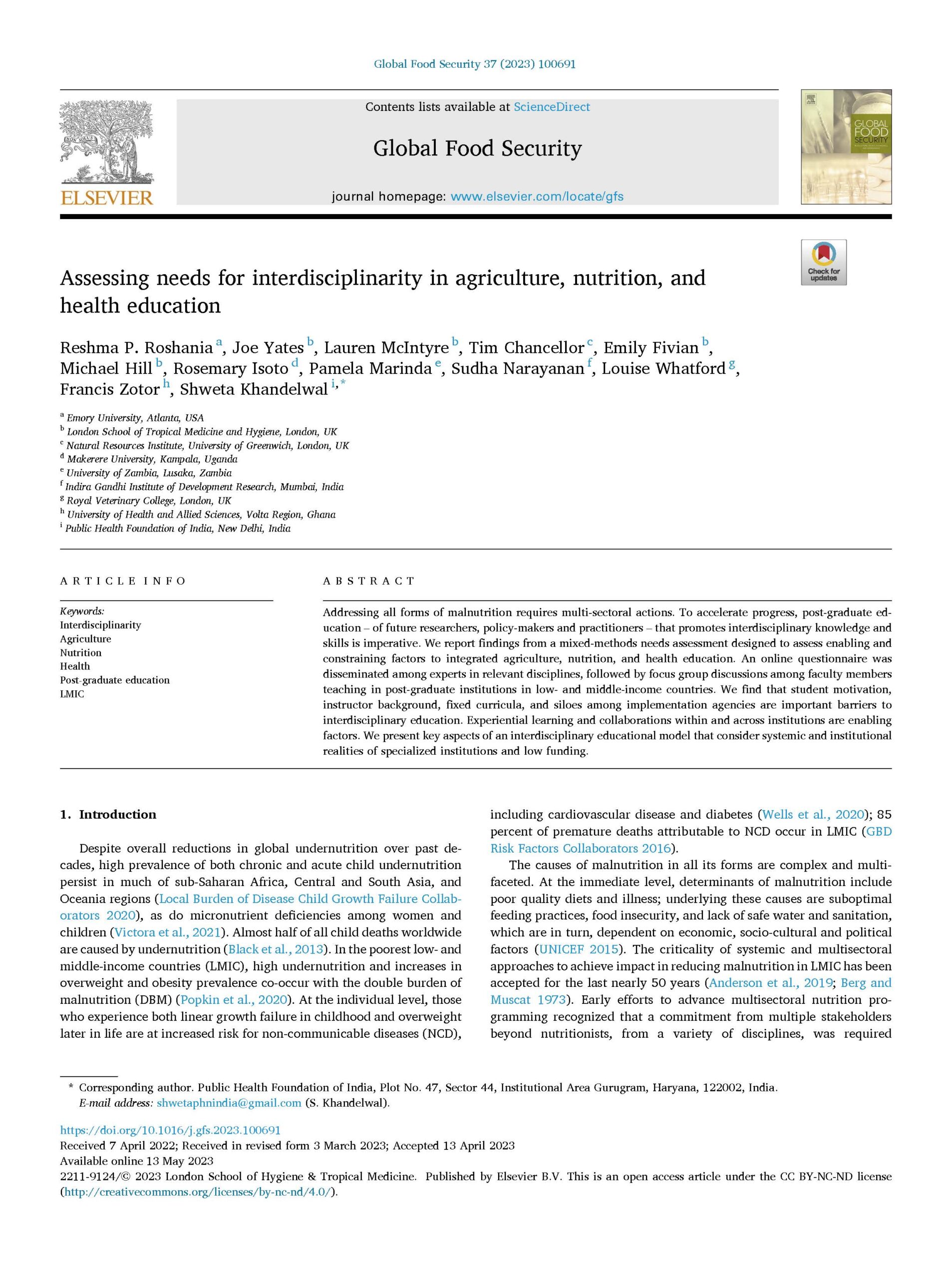
Addressing all forms of malnutrition requires multi-sectoral actions. To accelerate progress, post-graduate education – of future researchers, policy-makers and practitioners – that promotes interdisciplinary knowledge and skills is imperative. We report findings from a mixed-methods needs assessment designed to assess enabling and constraining factors to integrated agriculture, nutrition, and health education. An online questionnaire was disseminated among experts in relevant disciplines, followed by focus group discussions among faculty members teaching in post-graduate institutions in low- and middle-income countries. We find that student motivation, instructor background, fixed curricula, and siloes among implementation agencies are important barriers to interdisciplinary education. Experiential learning and collaborations within and across institutions are enabling factors. We present key aspects of an interdisciplinary educational model that consider systemic and institutional realities of specialized institutions and low funding.